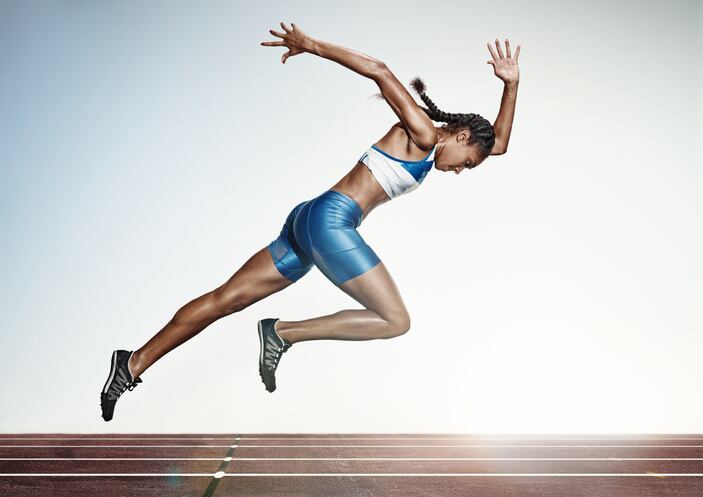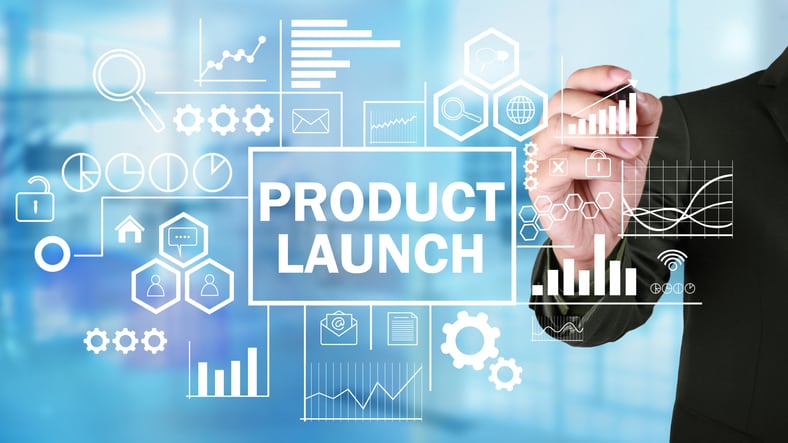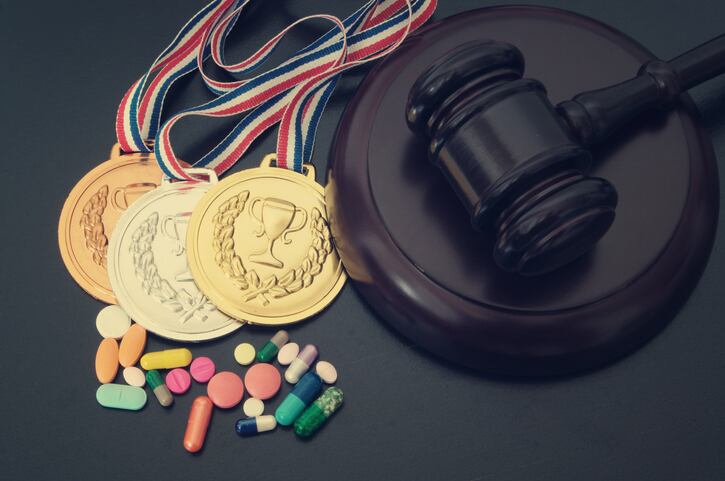From soccer star Megan Rapinoe, to PGA Tour golfer Bubba Watson, everyone seems to be hopping on the green wagon.
Some research has found that Cannabidiol (CBD) shows promise in relieving pain and reducing inflammation, benefits of interest for many athletes.
Sports nutrition
“Sports Nutrition is usually more about building muscle and burning fat and having more energy. And so it took a while I think for CBD to take a foothold in the sports nutrition
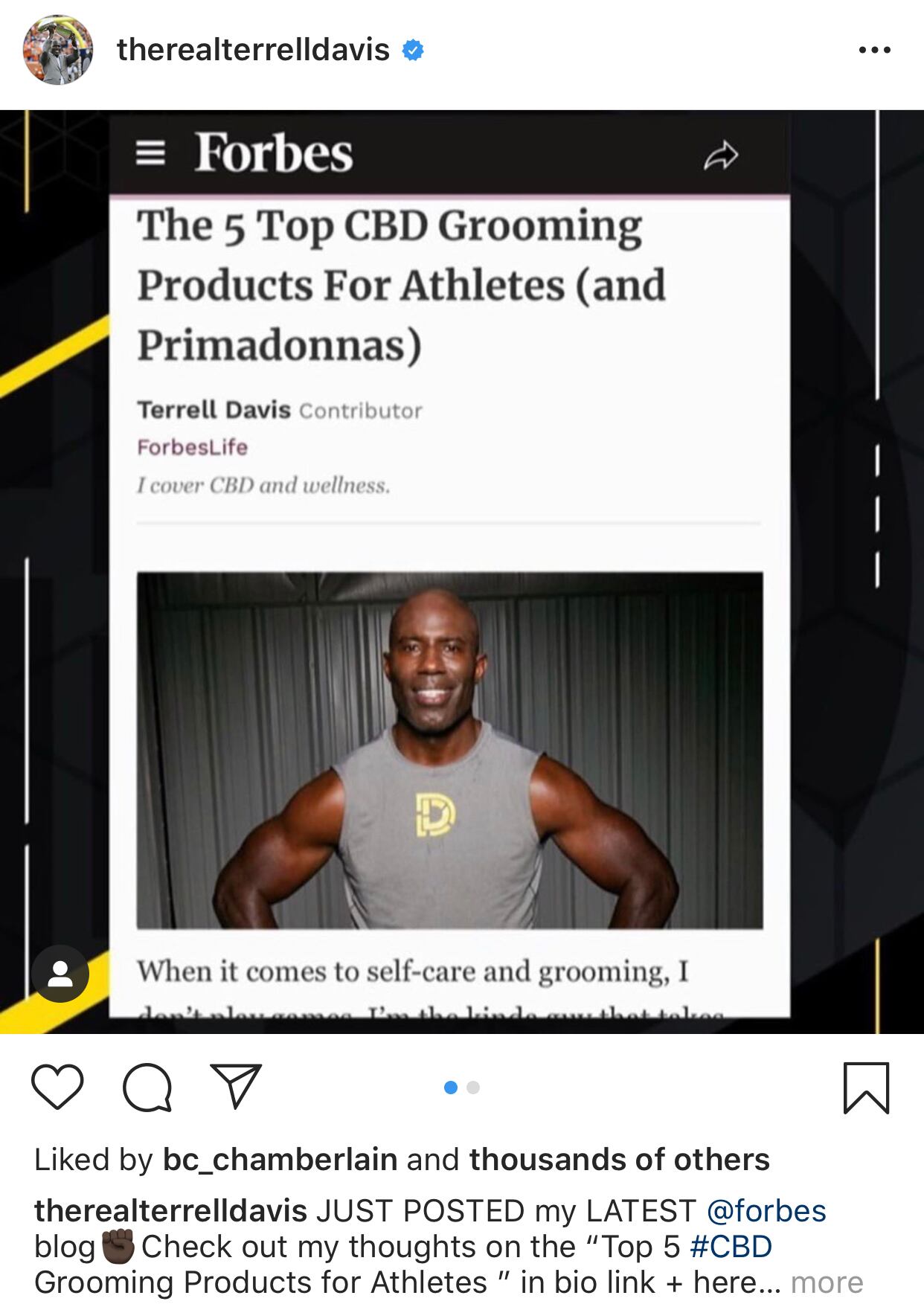
market. But now, I think a late adopter, the sports nutrition market has discovered CBD and so you have what some people are calling the ‘green rush’. And I think sports nutrition marketers are seeing it as a potential pre-workout supplement to improve focus and/or as a recovery supplement to reduce inflammation,” said Attorney Rick Collins, a founding partner at Collins Gann McCloskey & Barry.
Indeed, pro golfer Billy Horschel credits his recent successes to CBD wellness brand Beam. The nine-year PGA veteran said he uses their product Clarity for focus, a THC-free blend made of CBD powder, lion’s mane mushrooms, rhodiola and ashwagandha.
Beam was launched by former professional hockey player Matt Lombardi and former Chicago White Sox pitcher Kevin Moran in 2018. This isn’t a unique story — several athletes have launched their own lines or become a spokesperson for a CBD brand. The list includes UFC fighter Gina Mazany, former New England Patriots star Rob Gronkowski (now with the Houston Texans) and retired NFL player Terrell Davis, who was a key part of two Super Bowl winning teams.
Smart business move for athletes?
“When a trend is in its nascent hyper-growth phase, it tends to provide a level of overexuberance within its market participants. The ‘green rush’ can create a lot of business investment situations where personal passion and excitement outweigh realistic market opportunity. To protect an athlete’s downside risk, it would likely be more prudent to focus on brand partnerships and sponsorships where it's allowable by league conduct policies,” suggests Joshua Schall of J. Schall Consulting, a firm that specializes in brand development, new product launches and more.
“Over the last decade, information has been publicized about the usage of opioids by athletes to manage pain, especially with professional football players in the NFL. With the opioid epidemic raging across US communities, it’s become easier for the court of public opinion to see the need for professional athletes to get interested in CBD to manage pain more safely,” added Schall.
Indeed, a 2018 report from the World Health Organization indicated that CBD doesn’t appear to have the potential for misuse or dependence — unlike other pain-relieving substances like opioids.
“It's not really an illegal thing much anymore. They've actually been sort of lax with THC,” observed Mike T. Nelson, who has a PhD in exercise physiology. “It used to be zero-tolerance, now you're allowed a certain amount.”
A league of their own
The World Anti-Doping Agency (WADA) removed cannabidiol from its 2018 list of banned substances. The agency oversees the World Anti-Doping Code, which is used by over 600 sports organizations. Following the shift from WADA, the governing bodies that oversee sports such as golf, tennis, rugby and ultimate fighting have moved to allow their
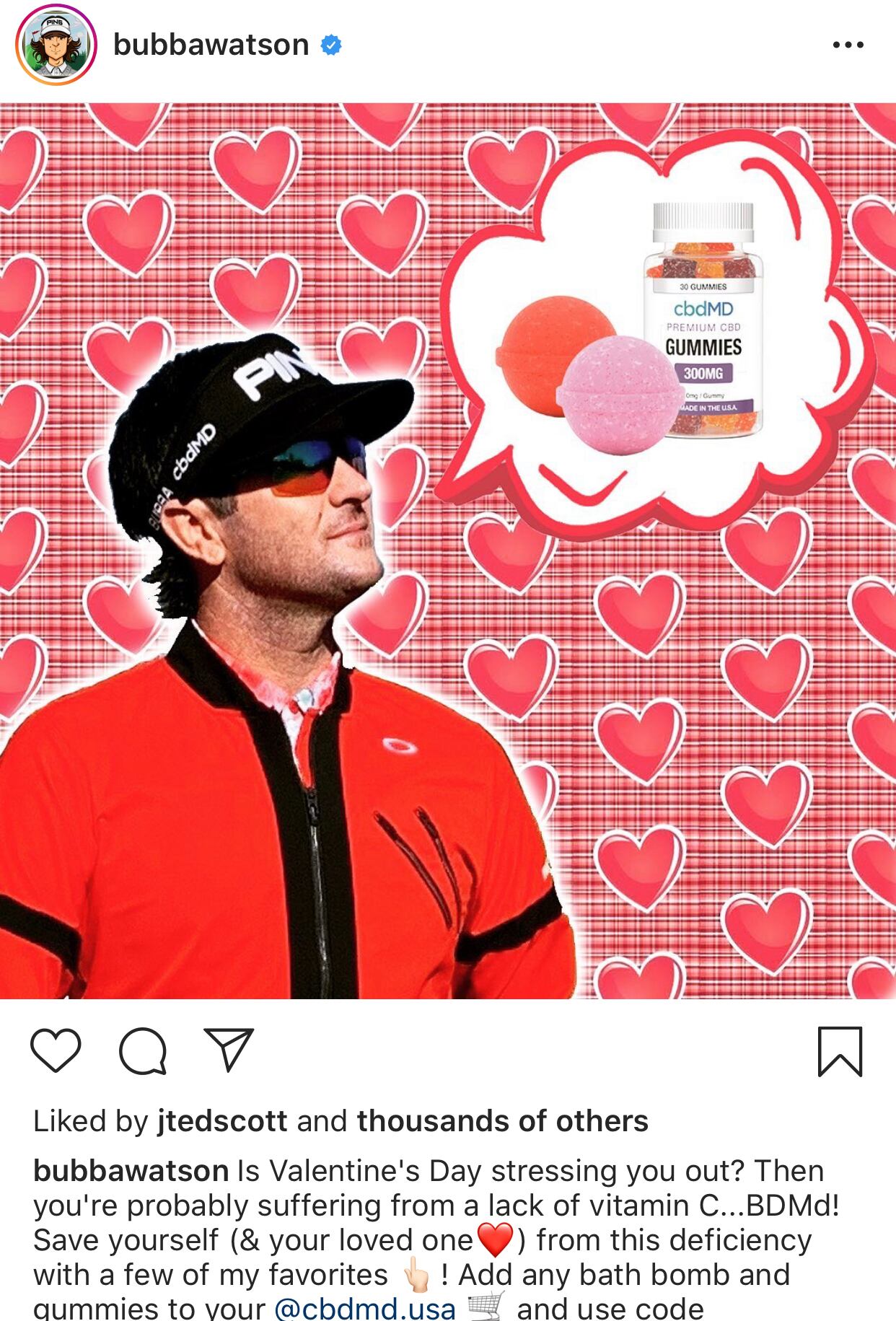
active athletes to use CBD.
However, most sports have developed their own policies.
Major League Baseball announced that it would remove cannabis from its list of “drugs of abuse,” and treat cannabis consumption more like that of alcohol.
Under the NFL’s new collective bargaining agreement, players who test positive for marijuana will no longer be suspended. Testing will be limited to the first two weeks of training camp instead of from April to August.
The National Hockey League does include cannabis for testing among “drugs of abuse.” However, players won't be punished if they test positive.
In the NBA, players are tested randomly for cannabis use four times during the regular season. The first positive sends a player to treatment, the second fines them $25,000, the third suspends them for five games, and each positive thereafter suspends them for five more. Players typically aren't paid while on suspension, so that could amount to a de facto fine of hundreds of thousands of dollars in many cases.
Murky regulation
“So we have a situation where FDA’s position is it's a ‘no-no’ and yet you can walk into a mom-and-pop vitamin store almost anywhere and buy a bottle of a CBD product. So there's this disconnect between what FDA’s position is and this exploding market. And at this point the question is, can you put that genie back in the bottle? Because it's everywhere. It's everywhere,” said Collins, who also serves as legal counsel to the International Society of Sports Nutrition (ISSN).
Despite it being everywhere, CBD has uncertain regulatory standing. Hemp cannot legally contain more than 0.3% THC. Tetrahydrocannabinol (THC), the principal psychoactive constituent of cannabis is a schedule 1 controlled substance classified by the DEA. Anything more than 0.3% is considered marijuana — a version of cannabis which remains illegal under federal law. And according to FDA CBD still cannot legally be marketed as a dietary supplement or food ingredient.
Dosage uncertainty
Another point of confusion is there is no standardized dosage.
“THC is the psychoactive cannabinoid that is in marijuana. So the question becomes, can CBD result in a positive drug test?” asked Collins.
Nelson, who is also an adjunct professor and a member of the American College of Sports Medicine, said “It's all across the board. I mean I've had some athletes who are just super afraid of testing positive for anything, even if they can find a good company that has COA (certificate of analysis) data."
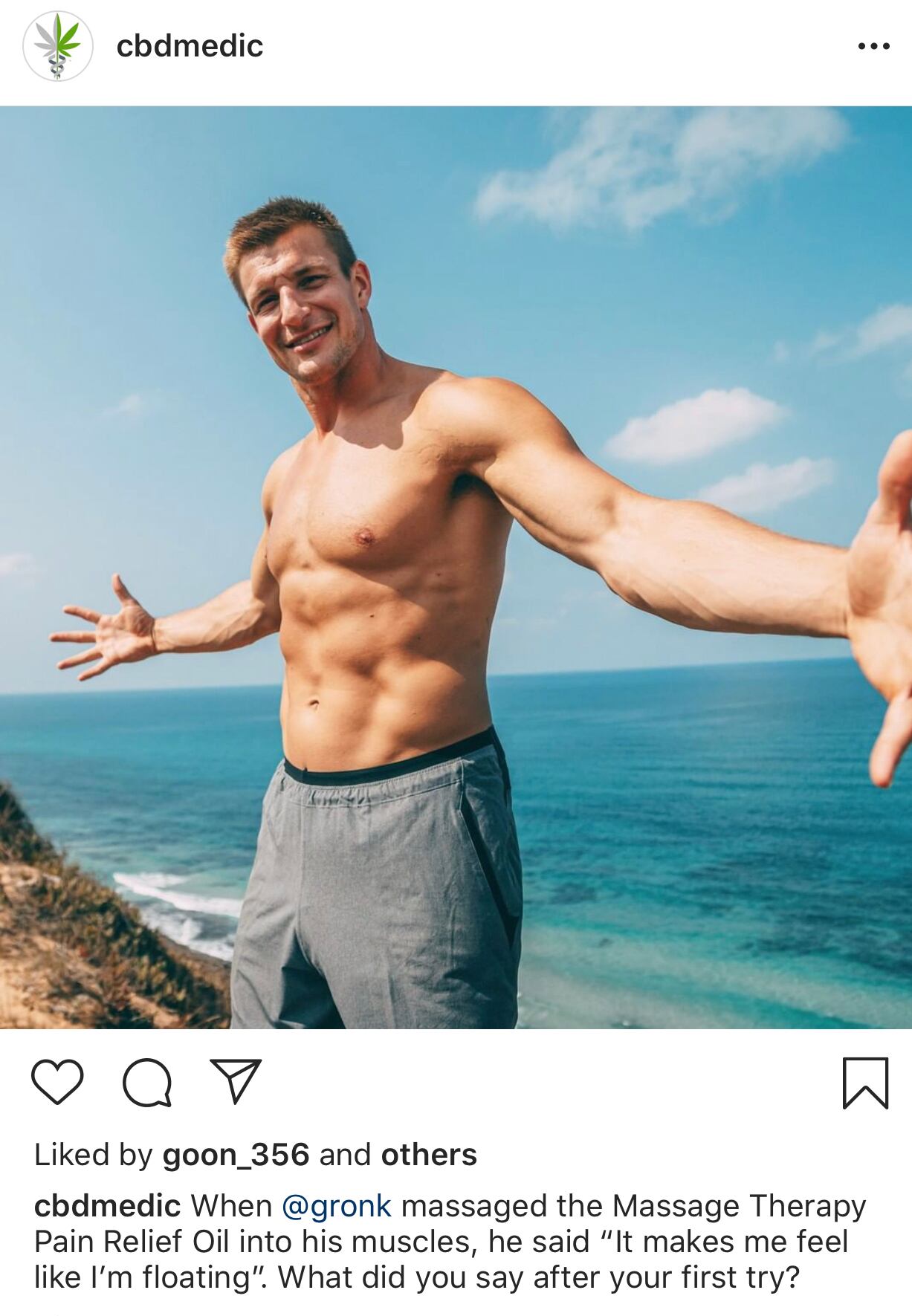
Collins pointed to Olympic silver medalist Devin Logan as an example. “She took a CBD product that said it had only had trace amounts of THC. Now the world anti-doping agency allows CBD, it’s allowed under WADA rules. So you think everything would be fine, right? No. Not not fine. She was suspended for three months because she tested positive not for CBD but THC.”
Collins highlighted that the threshold for THC detection is unknown, which may be the culprit for some of these positive results. “There's a whole separate issue with how much an athlete consumes because it may be that if you take a CBD product once a day, you may not test positive for THC. But what if you take multiple servings every day? What if you take a CBD product with breakfast and you take some oil at midmorning and then you take some CBD gummies after lunch and then you take a few drops in the afternoon and you start doing this? At what point does your consumption of CBD raise your levels of THC to a detectable amount? There really isn't enough research to determine how much is too much.”
Just say yes ...to more research
Shawn Arent, PhD, a professor and chair in the Department of Exercise Science at the University of South Carolina and the director of UofSC Sport Science Lab told us that he doesn’t recommend CBD to any of his athletes for that exact reason: “I don't believe the research is adequate at this point to support its use, there are questions about quality control and standardization, and I think there are enough other things worth recommending that do have scientific support. I'm not saying that there's no hope for CBD, only that I wouldn't feel comfortable recommending it for any of my athletes at this point.”
“It’s probably not on the top of things I would recommend to athletes just because I'm not convinced the data for overall muscle recovery is all that impressive,” said Nelson. “I would say the exception there would be if they have high anxiety-induced sleep issues. There's some data showing higher doses of CBD can help with anxiety overall and may help with sleep. Although most of the sleep studies are done in pathological instances, not necessarily with healthy people.”
Risky business
“I also think there needs to be some better understanding of the mechanisms and what it can actually do, because right now I feel like it's promoted for damn near everything,” said Arent.
“I think the most reasonable concern is the multiple daily serving scenario. The overconsumption of CBD triggering a THC positive,” said Collins. “So if they're taking CBD, you know, they are taking some risks.”
“At the end of the day I can only show them what the research is and say, ‘okay, here's the risk. Here's the potential reward.’ Each athlete has to decide if they think it's worth it, because at the end of the day, they're obviously responsible for anything that they ingest,” said Nelson.

